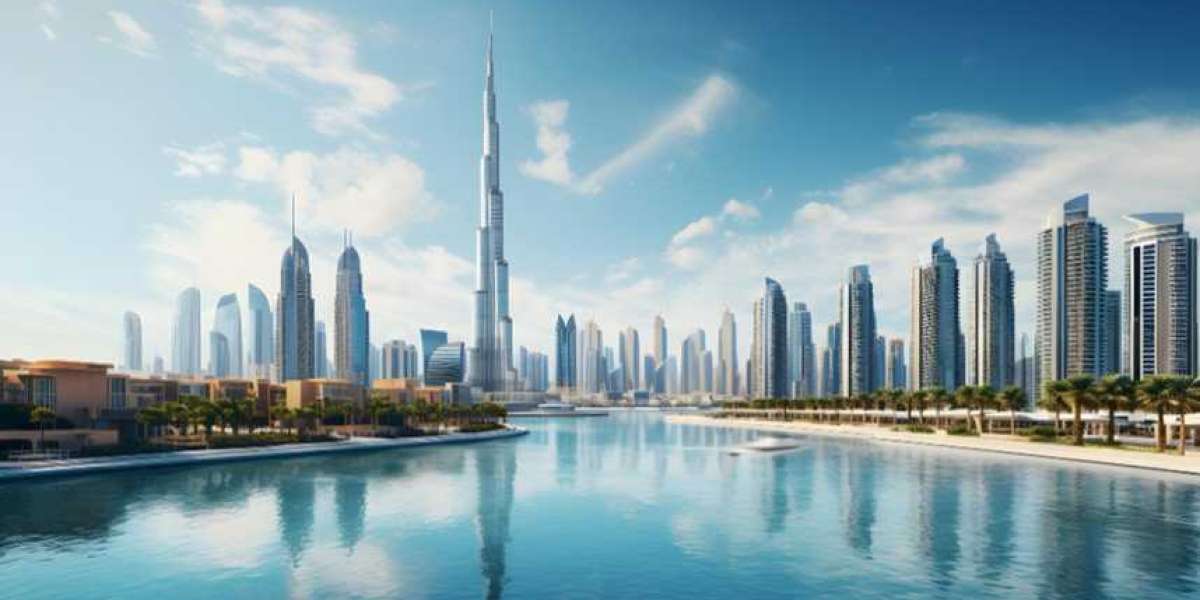Dubai, a city renowned for its luxury and modern architecture, has evolved into a global business hub, attracting entrepreneurs and corporations from around the world. This article provides an in-depth overview of the business setup in Dubai, highlighting its strategic advantages, key sectors, regulatory environment, and future prospects.
Strategic Location and Infrastructure
Dubai's strategic location at the crossroads of Europe, Asia, and Africa positions it as a pivotal gateway to international markets. Within a 4-hour flight radius, businesses can access a market of over 2 billion people. This geographic advantage is complemented by world-class infrastructure, including the Jebel Ali Port, one of the busiest in the world, and Al Maktoum International Airport, which supports extensive cargo and passenger traffic.
The city’s advanced logistics capabilities, combined with state-of-the-art telecommunications and transport networks, provide businesses with efficient connectivity to global markets. This makes Dubai an ideal base for companies looking to expand their reach across the Middle East, Africa, and South Asia.
Business-Friendly Environment
Dubai’s government has implemented numerous policies to foster a business-friendly environment. The establishment of free zones, such as the Dubai International Financial Centre (DIFC) and Dubai Multi Commodities Centre (DMCC), allows for 100% foreign ownership, tax exemptions, and full repatriation of profits. These zones are designed to reduce bureaucratic hurdles and streamline the process of setting up and operating a business.
For those interested in specific sectors, obtaining a gold trade license in Dubai or business setup in a Dubai freezone can provide targeted benefits. The DMCC, for example, is renowned for its gold trade facilities, offering specialized support and services for businesses in the precious metals sector.
Economic Diversification
Dubai's economy is highly diversified, reducing its reliance on oil revenues and fostering growth across various sectors. Key industries include tourism, real estate, aviation, and financial services.
- Tourism: Dubai is a global tourism hotspot, attracting millions of visitors each year. Iconic landmarks such as the Burj Khalifa, Palm Jumeirah, and the Dubai Mall draw tourists from around the world, bolstering the hospitality and retail sectors.
- Real Estate: The real estate market in Dubai is robust, characterized by high-end residential, commercial, and mixed-use developments. The city’s skyline, with its towering skyscrapers and innovative architectural designs, reflects the vibrancy of its property sector.
- Aviation: Home to Emirates, one of the world's leading airlines, Dubai is a major aviation hub. Dubai International Airport is one of the busiest airports globally, serving as a critical link in international air travel.
- Financial Services: The DIFC is a leading financial center in the region, attracting banks, investment firms, and insurance companies. The center's regulatory framework and business-friendly policies have made it a preferred destination for financial services.
Innovation and Technology
Dubai is committed to becoming a global leader in innovation and technology. Initiatives such as Smart Dubai and the Dubai Future Foundation underscore the government’s dedication to transforming the city into a knowledge-based economy. These programs aim to integrate advanced technologies like blockchain, artificial intelligence, and the Internet of Things (IoT) into everyday life and business operations.
Innovation hubs like Dubai Internet City and Dubai Silicon Oasis provide a conducive environment for tech startups and multinational tech companies. These hubs foster research and development, collaboration, and business growth, positioning Dubai as a competitive player in the global tech industry.
Regulatory Environment
Dubai’s regulatory environment is designed to protect businesses and promote transparency. The legal system, particularly in free zones like the DIFC, adheres to international standards and principles of common law. This ensures a fair and transparent process for resolving commercial disputes.
For entrepreneurs, understanding the regulatory landscape is crucial. Engaging with business setup consultants in Dubai can provide valuable insights and assistance in navigating local laws, obtaining necessary licenses, and ensuring compliance with all regulatory requirements.
Challenges and Considerations
Despite its many advantages, doing business in Dubai does present some challenges. The high cost of living and operating expenses can be significant barriers for startups and SMEs. Office rents, utilities, and wages in Dubai are relatively high compared to other global cities, which can impact profitability.
Moreover, while the regulatory environment is generally favorable, it can be complex. Navigating local labor laws, visa regulations, and licensing requirements requires a thorough understanding of the legal landscape. Engaging local consultants or legal advisors is often necessary to ensure compliance and mitigate risks.
Sustainable Development and Future Prospects
Dubai is committed to sustainable development, aligning with the UAE Vision 2021 and Dubai Plan 2021. The city’s focus on sustainability is evident in initiatives like the Dubai Clean Energy Strategy 2050, which aims to make Dubai a global hub for clean energy and green economy. This strategy includes ambitious targets for renewable energy adoption, energy efficiency, and carbon footprint reduction.
The Expo 2020, although postponed to 2021 due to the pandemic, showcased Dubai’s resilience and innovation on a global stage. The event attracted millions of visitors and generated significant economic activity, further cementing Dubai’s status as a premier business destination.
Conclusion
Dubai's transformation from a small trading port to a global business hub is a testament to its visionary leadership and strategic investments. The city's strategic location, business-friendly policies, diversified economy, and focus on innovation make it an attractive destination for businesses worldwide. Obtaining a gold trade license in Dubai or exploring business setup in Dubai freezone are just some of the many opportunities available to entrepreneurs.
While challenges exist, the opportunities far outweigh the risks, promising a bright future for those who choose to invest in Dubai's dynamic market. As Dubai continues to evolve, it remains a beacon of prosperity and a model for other cities aspiring to achieve economic excellence.







